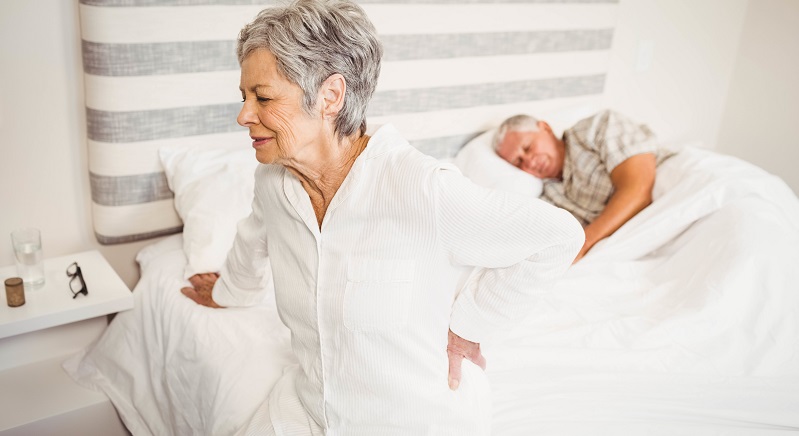What to Know About Back Pain And Menopause
Category: Back Pain | Author: Stefano Sinicropi

As we grow, our bodies go through significant changes on the inside and out. Some of these changes are welcomed, but others can be quite annoying. One process that few women look forward to as they get older is menopause. Menopause involves that natural decline in reproductive hormones in a woman, but it can lead to other symptoms as these changes take place. One such change is the onset of chronic back pain.
A recent study out of China found a link between menopause and the onset of certain types of back pain. The study tracked a number of women as they entered menopause and the years that followed. At the conclusion of the study, researchers found a strong link between oestrogen deficiency and spinal disc degeneration. In other words, women who were going through menopause were at a greater disc for disc-related back pain during menopause and in the years that followed.
The good news is that now that this link has been found, we have a better idea of how we can prevent risk problems in post-menopausal women.
Preventing Back Pain From Menopause
We’re not going to be able to stop these hormonal changes from taking place in our bodies, but we can control how we treat our spine and spinal discs in other aspects of our life. These spinal discs tend to lose height naturally as we age, but this process can occur quicker due to hormonal changes and poor lifestyle factors. By knowing what lifestyle factors keep our discs healthy, we can help to prevent natural degeneration that comes with aging and menopause.
Some ways to keep our spinal discs healthy include:
- Eating a diet full of essential vitamins and nutrients.
- Getting regular exercise.
- Having good posture throughout the day.
- Avoiding tobacco products and excessive alcohol intake.
- Regular stretching, or similar movement based exercises like yoga or Tai Chi.
- Replacing more impactful exercises like running with less impactful exercises like swimming.
- Talking to your doctor about your pain, and treating small problems before they snowball.
Despite your best efforts, you may still deal with back discomfort as your progress through menopause. When these flare-ups occur, try to find a routine to help alleviate symptoms. Some patients find relief with rest and relaxation, while others find symptom relief with ice packs, heat pads or by taking a bath at just the right temperature. Some over-the-counter pain relievers can also help during this time, so see what works best for you. Again, a consultation with a spine pain specialist can help you manage your pain and find ways to overcome it when flare ups occur.
Try to stay ahead of your back pain at all stages of life, but especially as we get older and our bodies go through some changes. For help with any aspect of this, reach out to Dr. Sinicropi’s office today.